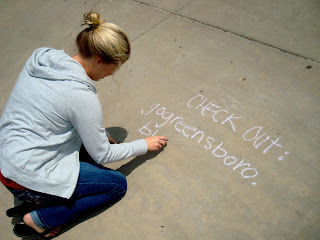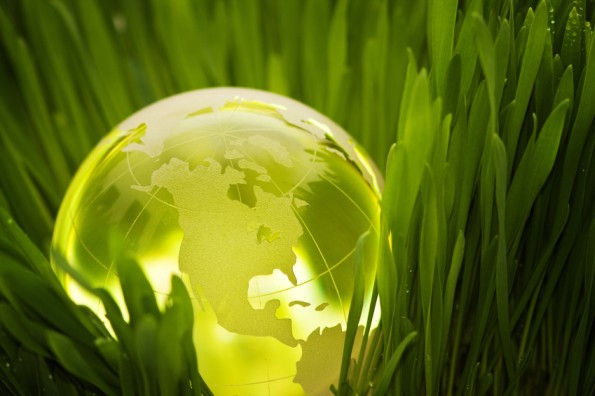Hey Go [Green]sboro fans! After much deliberation about this week’s green topic, I decided I would pontificate on something I find terribly frustrating here: recycling. For one, our fair city of Greensboro does not have a very expansive recycling program. My biggest lament with them is the limited amount of plastic they will take. Only plastics of the one and two variety! Bottles are commonly mis-recycled. Did you recycle your bottles but left the caps on? Yeah, those got pitched. You know all of those little yogurt cups? Straight to the dump because they are a six plastic. But what can you do? Lots! Here are some ways to reduce your waste and get the most out of the Greensboro recycling program:
1. What is the biggest “R” in the Reduce, Reuse, Recycle triangle? Reduce! Reduce the amount of packaging by trying to buy things in bulk and things that are not individually wrapped to cut down on waste. Green conscious food stores like Earth Fare allow you to bring your own containers to replenish various food staples like honey, spices and herbs, oatmeal, flour, etc. Co-ops and farmer’s markets often do this too. There are big pluses to shopping this way like being able to purchase only what you need, which means you save money and product. Bringing your own bag for produce allows you to cut out that little plastic bag we often reflexively grab in the produce section. When bringing your own containers/bags for weighted products though, don’t forget to weigh them before you fill them! This allows you not to be charged for their weight.
2. TOPS! Take ‘em off Of your bottles and cans! Having to be sorted by hand, the recycled goods have to be ready to be tossed into their designated bin. The workers will NOT have time to take off the tops before sorting them and the plastic top of the bottle is not the same type of plastic as the actual bottle and will contaminate the batch. Leaving lids on cans is a health hazard as the rough edges could cause the workers injury so they get thrown away too. Doing both of these things cuts down on both on landfill waste and the cost of running a recycling center!
3. Bring your own cups/mugs to the coffee shop! Or wherever they only offer disposable options. You not only cut out a disposable cup but you often get a discount too. Tate St. Coffee and Coffeeology both offer a “own mug” discount and they recycle their disposable plastic cups if you leave them in/on the dish tray.
4. No broken glass in your recycling bin! Like the can tops these are dangerous to be sorted by hand.
5. No greasy paper products! If part of it is clean and free of the gunk, put that part in the recycling and pitch the rest.
6. No wax covered paper products like milk cartons.
7. Remove staples from papers/cardboard.
8. No Styrofoam- encourage your favorite take out places to purchase more eco-friendly to-go boxes
9. Remind friends and family to recycle and let them know what is and is not recyclable.
10. Encourage recycling expansion in Greensboro! Write the local representatives and newspapers encouraging them to take all plastics and Styrofoam.




